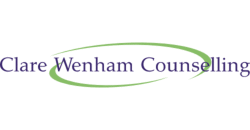Marriage counselling and couple counselling are both part of a relationship therapist’s work. Is there any difference between them? The answer is – it depends. If a couple is in a long-term relationship, they live together, have joint financial obligations, know each other’s family, particularly if they have children together, then the practical and relationship issues that couples have to deal with are the same, whether they are married or not. A married partner has greater protection under the law, however, so it is when a couple decides that they want to end the relationship that being married, or not, becomes the most significant; an unmarried couple can face greater uncertainty, and have even more need for legal advice.
So although I work with many married couples, relationship therapy is open to all couples, including, of course, same-sex couples, . Each stage of life presents different challenges. I see a surprising number of couples who have been together for five or six years, but have only recently married. Many have a small child. They thought that committing themselves to marriage and children would heal the cracks in their relationship, but after the initial euphoria of the wedding or the birth, the opposite has happened. Expectations of married life, and the fear of failure have increased. Differences that were forgotten during the excitement of planning the future have resurfaced in the cold light of routine, and can’t be ignored any longer.
Good counselling supports you to find out why your relationship isn’t working,whether you have been together a life-time, a few years or just a couple of months. It helps you to communicate your feelings and your needs better, and to discover what has to change if you are to stay together. Individuals also come for relationship therapy; you may be struggling to get over a relationship that has ended, unsure whether to continue with your partner, or wondering why your relationships never seem to last.
I don’t think there’s any such thing as a ‘normal’ marriage or a ‘traditional’ relationship. I come across couples who are living together, and are far more ‘married’ than those who have done the whole big white dress, expensive party thing. A good marriage is about comfortable, shared commitment to the same values and goals. Saying vows in front of your friends and family can help you to achieve that, but if you don’t listen to each other, or understand each other properly, then that legal piece of paper won’t help a bit. My job is to give you the time, the space and the support to do some honest talking and listening. Many couples don’t look for help until it’s almost too late. So if you are starting to struggle, ring a Relate-trained or BACP registered counsellor. The research shows that the sooner you get support, the better your chances of staying together. Married or unmarried, it’s the commitment to making your relationship work that makes the difference.
